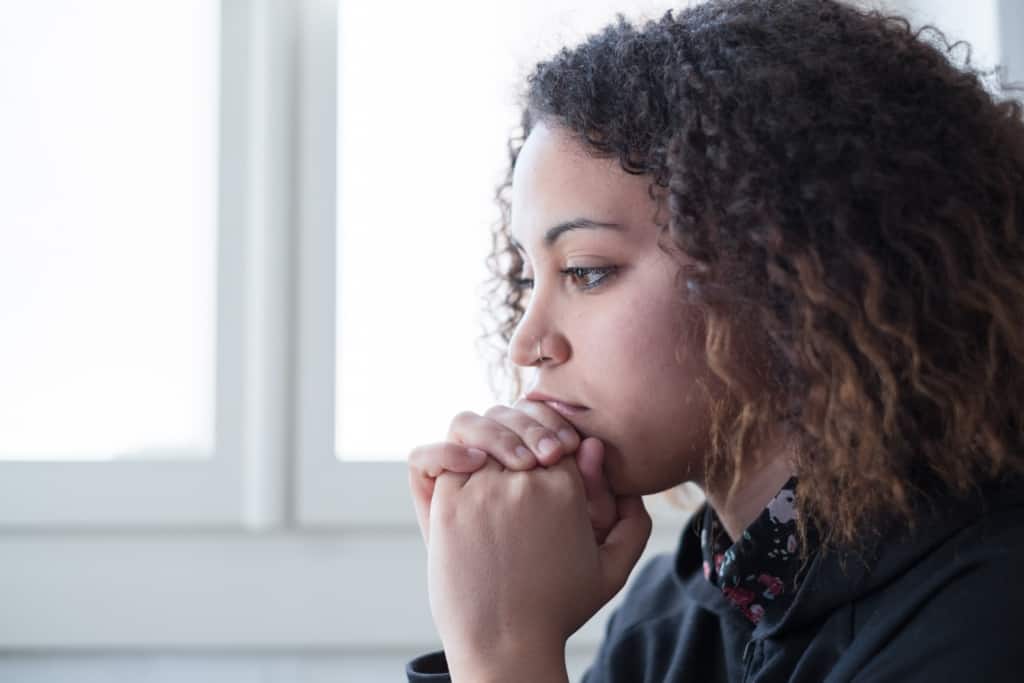Anxiety and depression are two of the most common mental health illnesses in the United States. On top of that, it is common for those with anxiety to also have depression, and vice versa. But why does this connection exist?
Which Comes First: Anxiety or Depression?
Anxiety disorders affect 40 million adults every year, which equates to about 18.1% of the population. However, it is not a condition solely found in adults. It is estimated that one-fourth of all children between the ages of 13 and 18 also have anxiety. This can cause serious problems in school and a lack of social bonding.
Anxiety is often seen as a high-energy state, whereas depression is usually on the opposite end of the spectrum as a low-energy state. However, despite this, it is still common for these two conditions to co-exist. In fact, someone with depression often experiences a lot of anxiety, sometimes even having panic attacks.
Those with anxiety often have intruding thoughts about things that others would never even consider. And while they know that these thoughts are irrational, they have a hard time stopping the thoughts from entering their mind. This inability to control their inner thoughts, even when they try their best, can open them up to depression.
When someone has anxiety, their likelihood of developing depression is increased. It is estimated that nearly half of those diagnosed with depression also have anxiety.
It can end up being an endless cycle. The persistent and irrational thoughts appear in someone with anxiety, and they feel bad about having these thoughts. This feeling of failure can spiral and turn into depression, and the cycle can repeat.
It is also common for those with depression to feel anxious or worried. Anxiety often precedes depression, but either condition can trigger the other.
PTSD and Depression
There are many types of anxiety, including:
- generalized anxiety disorder
- panic disorder
- social anxiety disorder
- specific phobias
- obsessive-compulsive disorder
- post-traumatic stress disorder.
The subtype of anxiety of post-traumatic stress disorder (PTSD) is especially susceptible to developing depression.
PTSD is a psychiatric disorder that may occur in those who have witnessed or been a part of a traumatic event. This can include a serious accident, natural disaster, war, or some other type of traumatizing experience.
Those with PTSD often experience intense and disturbing thoughts and feelings that relate to their experience, lasting even after the traumatic event has ended. It is common for the emotions they felt during the event to come back to the surface as well. When this happens, it is common for depression to develop.
Having Anxiety and Depression
There are some traits that may appear in someone who has both anxiety and depression. They include:
- fatigue, rapid heartbeat, headaches, abdominal pain, labored breathing
- irrational worries or fears that won’t go away
- eating too much or too little
- difficulty falling asleep or staying asleep
- loss of usual interest in hobbies or activities
- inability to relax
- difficulty concentrating, remembering, or making decisions
If you are interested in learning about the treatments available for those with anxiety and/or depression, call Abbey Neuropsychology Clinic to talk to one of our exceptional team members or schedule an appointment.
Sources
https://www.psychiatry.org/patients-families/ptsd/what-is-ptsd
https://www.hartgrovehospital.com/relationship-anxiety-depression/
https://adaa.org/find-help/by-demographics/children/anxiety-and-depression
https://adaa.org/understanding-anxiety/facts-statistics
https://ajp.psychiatryonline.org/doi/10.1176/appi.ajp.2020.20030305


Leave a Comment